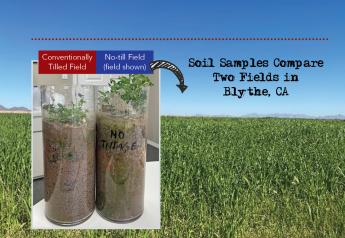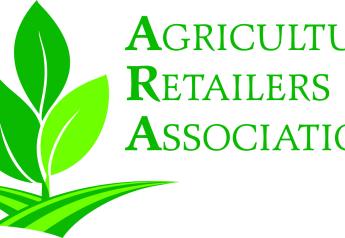Trump waives hours of service rules for emergency transport of food

President Donald Trump has declared a national emergency because the coronavirus COVID-19 and waived the hours of service rules for truck drivers transporting emergency supplies of food.
It’s the first time since the rules were enacted in 1930 that they’ve been suspended.
The March 13 emergency declaration covers “food for emergency restocking of stores,” as well as medical equipment, hand sanitizer, masks, and other items. The waiver remains in effect until midnight April 12 or when President Trump terminates it, if sooner.
The waiver grants emergency relief form the hours of service rules. Those rules still apply for routine deliveries and mixed loads that include “essential supplies” that are not being transported in support of emergency relief efforts, according to the declaration. Drivers must start the clock when they’re dispatched to “begin operations in commerce.”
The declaration does not define what are emergency relief efforts versus a return to “interstate commerce” not supporting relief efforts for drivers supplying retailers. It does not specific if the waiver covers fresh produce and other foods being transported to processing facilities.
President Trump, Vice President Mike Pence, Agriculture Secretary Sonny Perdue and other White House officials participated in a call with retailers and industry groups on March 15.
According to published reports, executives of Walmart, Aldi, Whole Foods, Wegmans, Publix and other retailers participated.
Greg Ferrara, CEO of the National Grocers Association, welcomed the opportunity to speak to White House officials.
“While local, independent grocers are currently experiencing an unprecedented demand in store traffic and for product and goods, we continue to work closely with the president and our federal, state and local officials nationwide to ensure the resilience of both the food supply chain and our local economies,” according to a statement from Ferrara.
“Our industry has faced emergencies before from hurricanes to earthquakes, and fires to floods,” he said in the statement. “Grocers are experienced and prepared to continue serving their communities and employees as our members do each and every day.”
The Food Industry Association (FMI) also released a statement, ensuring the “viability of the supply chain and the availability of safe, affordable food.”
“We are resilient; our industry is working 24 hours a day to replenish and restock while ensuring the cleanliness of our stores and facilities,” FMI president and CEO Leslie Sarasin said in the statement. “We are seeking to be sensitive to the needs of all our customers and partners, including our WIC and SNAP shoppers and the food banks our stores support.”
Many grocery stores are expanding the hours they are closed to clean the store and restock shelves.
“As we continue to see an increase in customers, this temporary reduction in hours will allow us time to focus solely on store cleanliness and product availability,” according to a news release from St. Louis-based Schnucks. “Our supply partners and warehouse teams continue to work around the clock to ensure that product is available to our customers as quickly as possible.”
For more coronavirus coverage, check out our landing page on the topic here. To contribute to a survey on how the pandemic is affecting the produce industry, click here.
Related stories:
How the coronavirus is affecting the produce industry
Foodservice sector bearing brunt of outbreak
Sonora Grape Summit postponed, but crop report offered online







